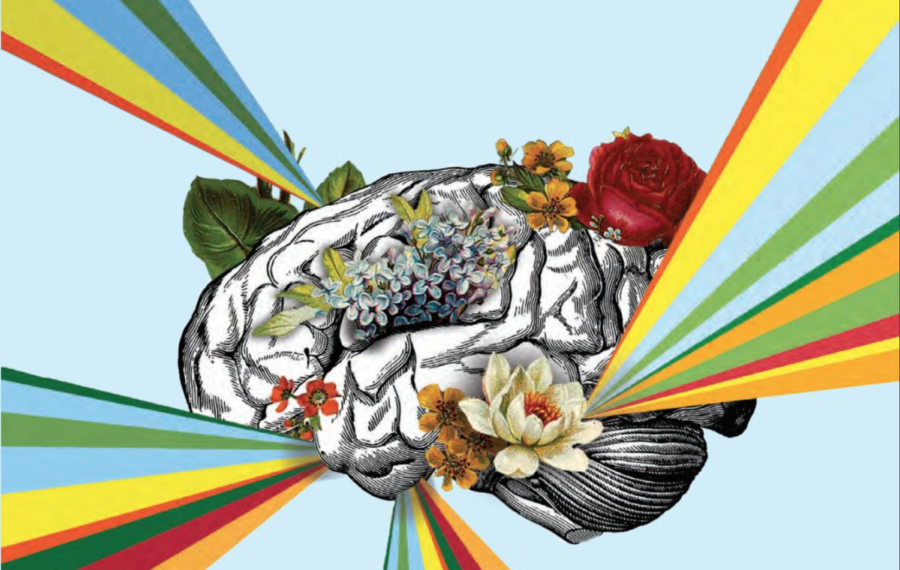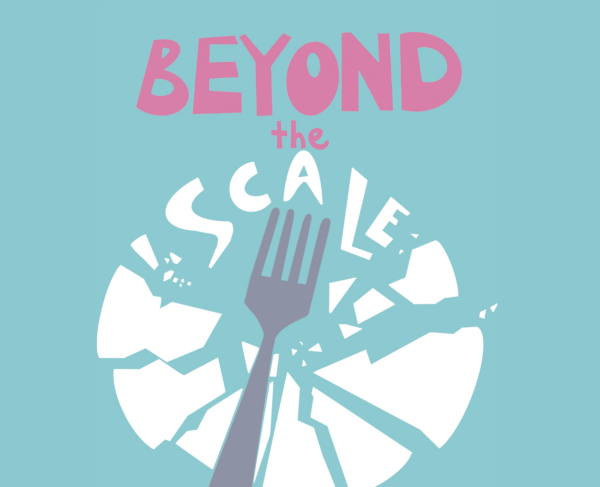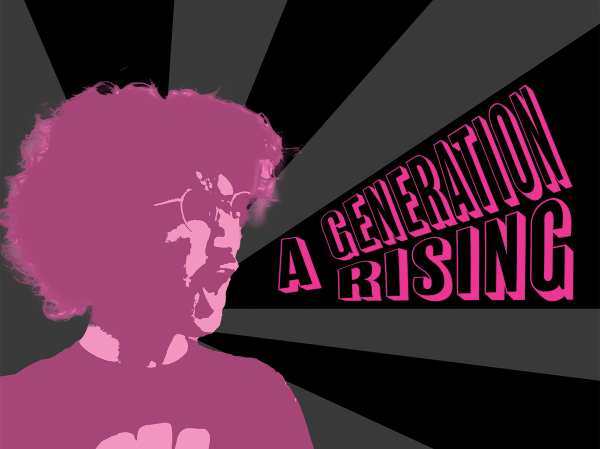Beyond the Brain
In an effort to expand Paly’s perception of intelligence, C Magazine investigates the nuances and psychological reasons behind this abstract concept.
Numbers are objective and letter grades are concise, but beyond being a scale for measurement, they are meaningless. In the endeavor to quantify intelligence, the Palo Alto community has forgotten what it truly entails. This narrow-minded view of intelligence has proven to be detrimental to the student population in many ways. By using letters and numbers to diminish the meaning of intelligence, societal pressures warp students’ perceptions of their self-worth and undermine the effectiveness of the school system. As times have progressed, however, it has become clear that intelligence is not accurately represented in standardized tests or GPAs. Instead, it is a constantly evolving mixture of attributes that depends on an individual’s perception of their own intellectual potential.
At Palo Alto High School, tests and grades are inherent to students’ lives. They often find themselves choosing the most challenging courses to take, especially in science and math, primarily to prove their intellectual excellence. This culture is promoted by the competition between students in order to feel as though they are excelling in their academic courses. Each year, the pressure to maintain a high GPA and take advanced courses increases as the deadlines for college applications draw nearer.
This strict idea of intelligence does not accurately reflect what students believe it should mean. Sophomore Jean-Pierre Meluge says, “I think intelligence should be measured through understanding instead of ‘smartness,’ because most of the kids just regurgitate information just to get good grades on tests.”He believes that students do not learn because they are genuinely interested, but instead do so to compete with their peers and earn a higher grade.
Many of the staff members at Paly work to challenge the traditional notion of intelligence through their curriculum and interaction with students. Eric Bloom, a teacher in the Social Justice Pathway, emphasizes that there is a clear distinction between the idea of “intelligence” and “smartness.”
“I don’t believe in smart,” Bloom said. “I do believe in intelligence. I think intelligence is the ability to gather, acquire and collect information and then do something with it.”
A person’s intelligence is a complex mixture of their abilities and the ways that their environment help them build that ability.
— Michael Frank
Unfortunately, Paly’s perception of intelligence is rather one dimensional. “The generic Paly kid thinks intelligence is smartness,” Bloom said. “That’s why I get so frustrated when kids say ‘Oh well, she’s smart and he’s smart and that’s why they get good grades.’” He believes that those who excel in classes are actually those who put in hard work to achieve their goals.
Stanford Psychology Professor Michael Frank, who studies children’s language learning, says “intelligence is a general problem-solving ability, but there are many people who are better or worse at certain kinds of problems too, for example verbal or spatial problems.” In the Palo Alto Unified School District, many of these problem-solving abilities are not recognized as different types of intelligences, but simply as natural aptitude in these different areas. For this reason, students whose strengths lie in areas not reflected in academics are commonly overlooked and often feel that they are objectively less intelligent than their counterparts.
Although the multiple intelligences theory has been widely accepted by psychologists for many years, an individual may not necessarily land squarely within a specific area defined by this theory. What makes the concept of intelligence so abstract is that the various definitions do not have explicit boundaries and interact in many different ways, making it difficult to objectively measure it in one definite way. The interaction between one’s intellectual strengths and weaknesses contribute to a complex entity that must be studied both separately and collectively in order to get a true understanding of one’s intelligence. Stanford Psychology Professor Hyowon Gweon, who studies the processes that allow humans to learn and communicate, explains that intelligence can be perceived in a variety of ways due to its nature as a unified whole composed of moving parts. “It’s important to remember that it’s a single brain that makes us understand how things work, how others feel and interact with others, so there are reasons to study [different intelligences] independently but also important to study human intelligence as a single thing,” Gweon said.
Intelligence in a person is recognized by everything that you, I, or anyone, including young babies, do in their everyday lives — you would be surprised how nontrivial it is to do many everyday things that seem so mundane.
— Hyowon Gweon
As a culture built on equality, a fundamental source of tension between people is the concept of “natural talent.” People are born with different intellectual strengths which only drives their instinctive obsession to rise above others. Ironically, many who strive to hold equality in high regard attempt to demonstrate their “natural” superiority by displaying said strengths. In fact, it has become increasingly common for people to flaunt minimal effort accompanying high achievement to insinuate that they are “naturally” more intelligent, and therefore superior.
“Certainly intelligence is heritable in the sense that it varies genetically,” Frank said. “But a person’s intelligence is a complex mixture of their ability and the ways that their environment helps them build that ability… ‘natural talent’ exists in that some people tend to be stronger than others and can lift heavier things, but anyone can get stronger by training.”
Therefore, natural intelligence only relates to one’s abilities at birth. An individual’s intellectual potential is ever changing and extremely dependent on hard work and constant curiosity. Those who neglect the value of hard work only prove that they have reached the end of their potential. Those who recognize that they have not reached the limits of their intelligence, however, will only see growth their capacity to learn and understand new problems.
Since intelligence is such a broad concept that is reflected in various aspects of life, it is unrealistic to measure it purely based on academic achievement. Rather, Gweon explains, it should be measured in the way one lives every day. Gweon says, “Intelligence in a person is recognized by everything that you, I, or anyone, including young babies, do in their everyday lives — you would be surprised how nontrivial it is to do many everyday things that seem so mundane.” Life presents people with problems every day, so it is only natural that people’s responses to simple life events can demonstrate their intelligence. These environmental influences not only reveal intelligence in a person, but they also serve to develop new thinking pathways. This reinforces that constant learning and hard work are the most significant contributors to intellectual growth.
Due to the academic culture at Paly, a concept that seems difficult to grasp is that intelligence is a malleable trait. “I’m trying to move away from the idea that either you have [intelligence] or you don’t,” Bloom said. In helping students realize their true intellectual potential, Bloom seeks to educate in a way that allows growth. In the end, the speed at which one learns is not as significant as the depth of understanding one reaches. “If it takes you ten minutes to do something that takes me twenty, it just means that you can do it faster than me,” Bloom said. “And why is fast important?”
We look for people who draw inspiration from different disciplines. Innovation happens when disciplines knit.
— Kimmie Glass
Additionally, Silicon Valley influences the students’ perceptions of intelligence by placing a severe emphasis on STEM. In the Bay Area, computer science and biomedical companies line every street and give students the impression that logic and computational skills are valued more highly than creative or social skills. Many companies, however, are beginning to value these previously overlooked skills.
Companies have a strong self-interest in combining different types of intelligence and capabilities to build strong teams and ensure long-term success. Because they have come to see intelligence from a wide point of view, every company has different expectations, standards and goals for both their business and employees.
“We look for people who take risks and who draw inspiration from lots of different disciplines,” Pinterest Event Coordinator, Kimmie Glass, said. “People who roll up their sleeves can help us grow and be team players. Innovation happens when disciplines knit.”
Today, most universities accept students based on their past grades and test scores as a prediction of future success. Contradicting this method, many studies, including a Time Magazine response that compared the success rates of Sonoma State and UCLA graduates, concluded that the college one goes to does not affect long term success.
“You need a strong work ethic to make it far in life, but you always need to be curious and creative,” Glass said. “Being creative is a mindset, not a skill set.” This mindset seems to be one variant perception of intelligence, in which problem solving and creative thinking are highly valued. Many of these desired characteristics and expectations of employees seem to be analogous among corporations worldwide.
In the real world, companies emphasize that success is based on a person’s motivation to work towards and realize one’s full potential. One highly-valued aspect of employees in companies is emotional intelligence, which translates to people with integrity, openness and potential for self-improvement. High levels of emotional intelligence allow one to be insightful and to motivate others to complete an objective. In high school, emotional intelligence is vastly undervalued, as many do not realize and ignore its pivotal role in success.
Companies are placing greater emphasis on emotional intelligence, the capability to adjust emotions to adapt to environments.
— Jeff Collins
Emotional intelligence largely affects how humans interact with others and perceive certain situations. Because it determines most of our daily actions, research suggests that it is responsible for as much as 80% of the success in our lives and is one of the most vital examples of how intelligence differs from “smartness.”
After experiencing both high school and working environments, many young, successful entrepreneurs and innovators desire a different type of intelligence. “As a high school student, I gave too much credence to external recognitions that supposedly marked someone as intelligent, such as awards, having articles published and degrees,” Jeff Collins, CEO of After School App, said. “Many companies today are placing greater emphasis on emotional intelligence, roughly defined as the capability to use emotional information to guide thinking and behavior and adjust emotions to adapt to environments.”
Using GPAs and math lanes as measures of intelligence narrows many students’ perceptions of their abilities. The working world, however, celebrates all different types of intelligence including logical, emotional, creative, physical and artistic intelligence. Successful companies often have an appreciation for a diverse set of skills. To truly understand this concept in a real-world context, Paly students need to broaden their narrow definitions and balance academic performance, hard work and their own, unique blend of these skills. The conventional definition that is popularized in Palo Alto schools hinders students’ intellectual development by influencing their perceptions of self-worth and limiting their potential for a higher intelligence. As generation after generation is brought up with a different definition of intelligence, it becomes clear that there is no single interpretation, as everyone has the power to influence how intelligence manifests within themselves.

Katherine joined C Magazine because she was amazed by the creative designs as well as interesting text the magazine continuously presents. She love the...










